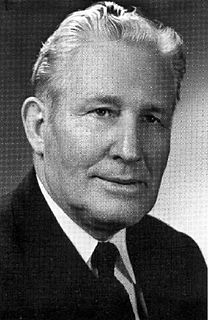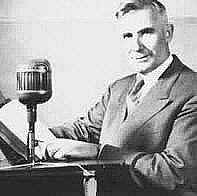A Quote by Philip Yancey
In a nutshell, the Bible from Genesis 3 to Revelation 22 tells the story of a God reckless with desire to get his family back.
Related Quotes
Let the gentleman go to Revelation to learn the decree of God - let him go to the Bible. . . . I said that slavery was sanctioned in the Bible, authorized, regulated, and recognized from Genesis to Revelation. . . . Slavery existed then in the earliest ages, and among the chosen people of God; and in Revelation we are told that it shall exist till the end of time shall come. You find it in the Old and New Testaments - in the prophecies, psalms, and the epistles of Paul; you find it recognized - sanctioned everywhere.
I wrote The Jesus Storybook Bible because I wanted children to know the Bible isn't mainly about you and what you're supposed to be doing. It's about God and what he has done. It's the story of how God loves his children and comes to rescue them. It's a Love Story. It's an Adventure Story. And at the center of the story is a baby - the child upon whom everything would depend. And every single story in the Bible whispers his name.
But the Bible says that the unreached will be judged on a quite different basis than those who have heard the gospel. God will judge the unreached on the basis of their response to His self-revelation in nature and conscience. The Bible says that from the created order alone, all persons can know that a Creator God exists and that God has implanted His moral law in the hearts of all persons so that they are held morally accountable to God (Rom. 1.20; 2.14-15). The Bible promises salvation to anyone who responds affirmatively to this self-revelation of God
The Bible is one long story of God meeting our rebellion with His rescue, our sin with His salvation, our guilt with His grace, our badness with His goodness. The overwhelming focus of the Bible is not the work of the redeemed but the work of the Redeemer. Which means that the Bible is not first a recipe for Christian living but a revelation book of Jesus who is the answer to our un-Christian living.
Take a Nicodemus and put a Joseph Smith's spirit in him, and what do you have? Take a Da Vinci or a Michelangelo or a Shakespeare and give him a total knowledge of the plan of salvation of God and personal revelation and cleanse him and take a look at the statues he will carve and the murals he will paint and the masterpieves he will produce. Take a handel with his purposeful effort, his superb talent, his earnest desire to properly depict the story, and give him inward vision of the whole true story and revelation, and what a master you will have!
I am open to [the notion of theistic revelation], but not enthusiastic about potential revelation from God. On the positive side, for example, I am very much impressed with physicist Gerald Schroeder's comments on Genesis 1. That this biblical account might be scientifically accurate raises the possibility that it is revelation.



































